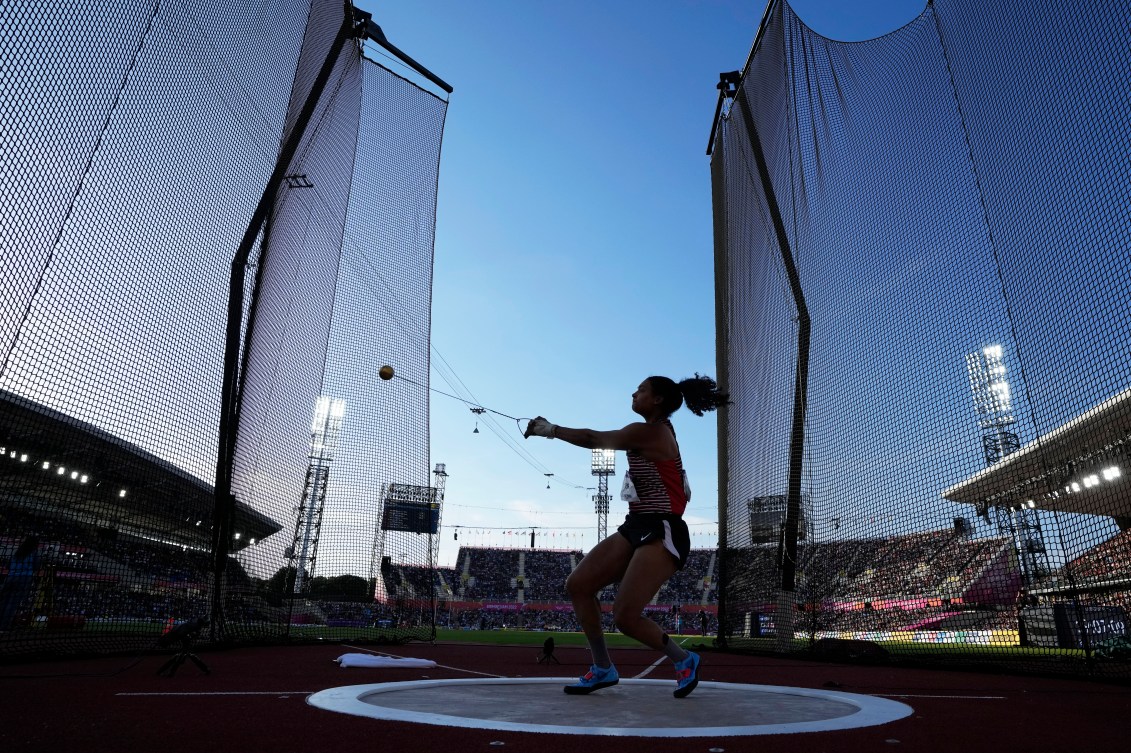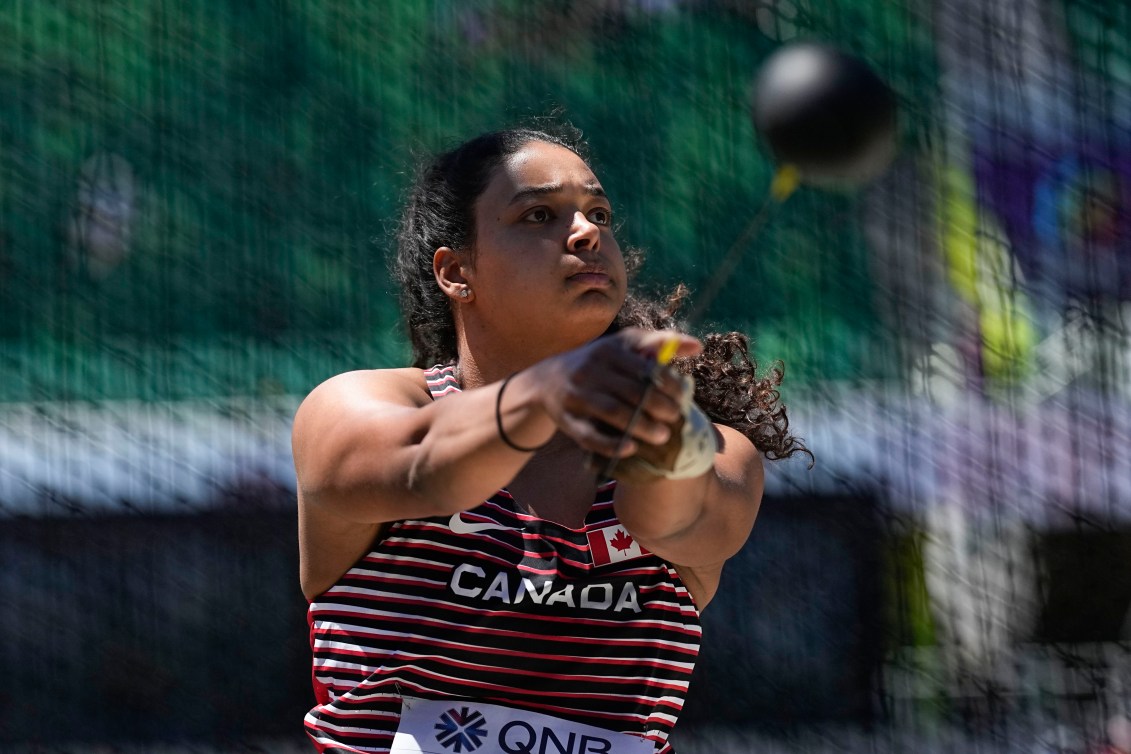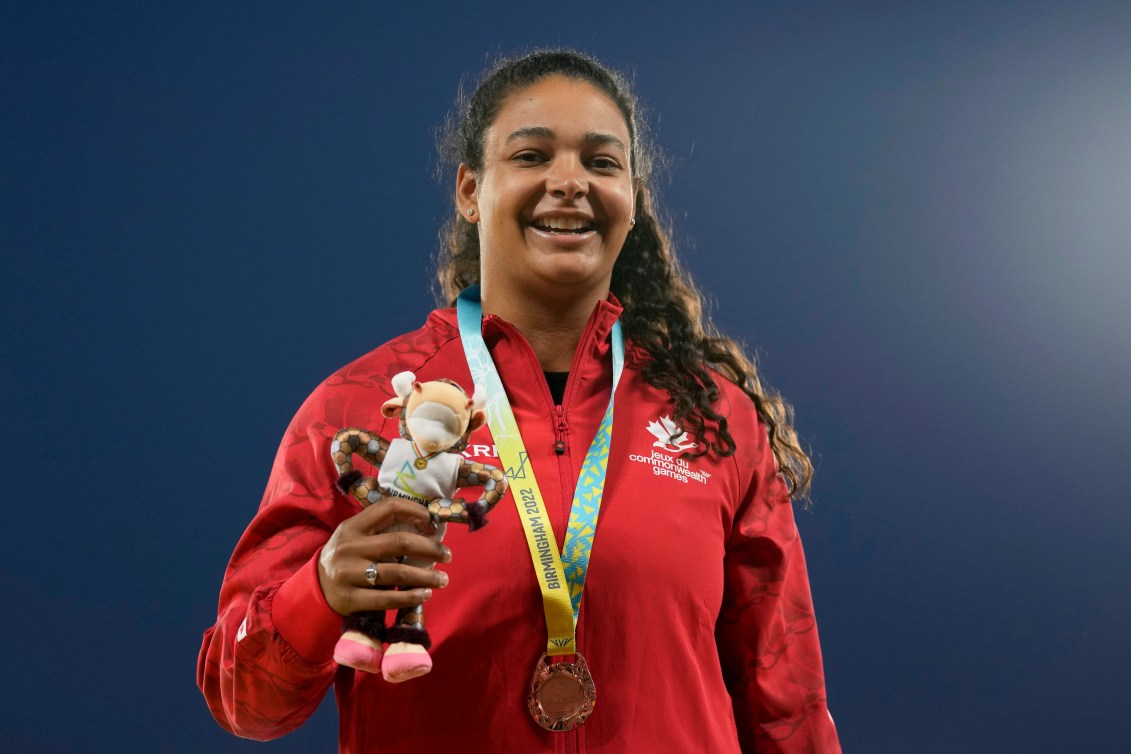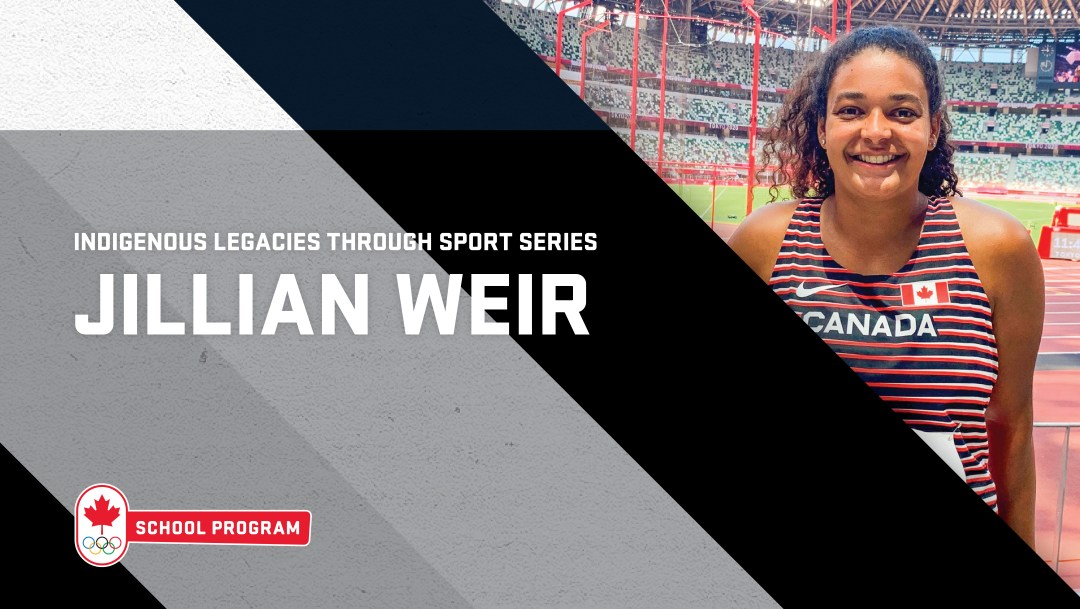A story of inclusion: Jillian Weir
From a very young age, Jillian Weir grew up playing different sports, undoubtedly influenced by her diverse family background. Her Canadian grandmother is Mohawk from the Tyendinaga Territory while her father is from England and has Jamaican parents. Jillian’s father is also an accomplished three-time Olympian, professional football player, and coach.
“My brother and I would go to the track while Dad was coaching, whether it was playing in the long jump pit, running around the track or hanging out on the field.”
As a student, she was surrounded in an inclusive athletic environment and encouraged to try a variety of sports. In school she played all different kinds of sports such as water polo, basketball and track and field.

Jillian began to focus on shot put and discus and went to university to compete. “At first, shot put and discus throwing were really my main events with hammer throwing kind of as a third event.”
Eventually, Jillian moved to a larger university and started to train more in hammer throw. “I just kind of found my own halfway through university and was really able to develop my skill from there.”
Jillian was then able to pursue and continue with hammer throw all the way to the Olympics. Jillian competed at the Tokyo 2020 Olympic Games, placing 19th for Team Canada which is the second best result all-time by a Canadian woman in the hammer throw. It wasn’t always easy for Jillian though. She faced stereotyping as one of the few athletes of colour within hammer throwing. However, this didn’t stop Jillian.
“Track and field is a sport where it doesn’t matter what your gender is, your size, or the colour of your skin, there is an event for everybody.”

During the summer, when Jillian was young, she would travel back to Canada with her family. This was an important connection back to Jillian’s Indigenous roots.
“We would go to the reserve as often as we could and I just have such fond memories of seeing family and getting authentic moccasins and dream catchers. I always had a dreamcatcher in my room and I still do. There were little pieces of my background and culture that were comforting that I liked to have and be a part of.”
Jillian still makes sure to go back to Tyendinaga and even visited many schools on the reserve as a guest speaker with her grandmother in 2021. While growing up in California, Jillian and her family would attend a Pow Wow every Mother’s Day weekend.
“My mom always made a point to take my brother and me to that so we would recognize that this is similar to our Indigenous family back home. It was something that we really looked forward to going to each year, just to be connected to the culture and support the families that were there.”

Inclusion is a theme that has stuck with Jillian throughout her years as a competitive athlete and an Olympian.
“Everybody wants a place where they feel that they belong. When you compete in athletics and in sport, no matter what level, what matters is being able to go out there and do your best. It doesn’t matter where you come from, what you look like, what your beliefs are or anything like that. Sport, for me, is really a place where everyone belongs and all those other identities don’t have to define you.”
Jillian Weir’s story was originally featured as part of the Canadian Olympic School Program’s Indigenous Legacies through Sport Series, alongside the story of cross-country skier Jesse Cockney. The resources at the link above are available in two different reading levels and are accompanied by discussion questions and learning activities.




